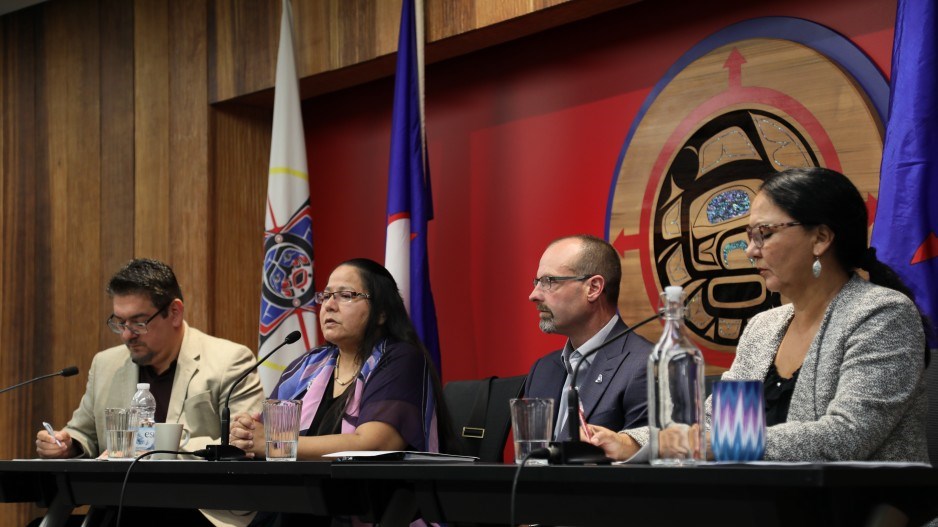A federal bill that seeks to ensure Canadian laws are in line with an international declaration on Indigenous rights is at risk of dying in the Senate, with First Nations groups and organized labour in British Columbia blaming the Conservative Party of Canada.
The First Nations Leadership Council and the BC Federation of Labour (BCFED) criticized on Monday what they characterize as Conservative-led delays of Bill C-262 in the Senate and accused Conservative senators of “employing wholly undemocratic procedures” through a joint statement.
Introduced in 2016 as a private member’s bill by Cree NDP MP Romeo Saganash, Bill C-262 was passed in the House of Commons in 2018 by a margin of 206 to 79 votes. The bill would require the Canadian government to enshrine the United Nations Declaration on the Rights of Indigenous Peoples (UNDRIP) into Canadian law and launch a process to ensure existing laws are harmonized with UNDRIP.
“Most of the Members of Parliament [in the House of Commons] overwhelmingly voted for this. That includes the Liberals, the NDP, the Conservatives and the Greens. I do believe that this is an attack on democracy, that the Conservatives and any independent senators, who do not get voted in, would not vote for this bill,” said Robert Phillips of the First Nations Summit Political Executive during a press conference on Monday.
The criticism comes after the Standing Senate Committee on Aboriginal Peoples was supposed to hear from witnesses and then conduct a clause-by-clause reading of the bill June 5. The process was abruptly cancelled after a group of Conservative senators denied the committee the unanimous consent it needed to hold its meeting.
Conservative senators Donald Plett and Scott Tannas are among those that have pushed back on Bill C-262, which they fear could create legal and economic uncertainty by giving Indigenous groups a ‘veto’ over infrastructure and resource development projects.
“[Bill C-262] actually would provide a better process in regard to knowing what the outcomes are. Right now, I would say with existing legislation the non-recognition of our Indigenous people is what’s bringing the uncertainty,” said Kukpi7 Judy Wilson, secretary-treasurer of the Union of BC Indian Chiefs.
With the current Senate session possibly coming to an end in the next few weeks, Bill C-262 is at risk of failing to get a final vote in the Red Chamber.
“It’s accurate to say that if the Senate rises and this is not passed, then it ends that piece of legislation, and we are back to the drawing board in terms of a federal election before new legislation can emerge. That’s shameful and sad,” said BCFED president Laird Cronk.
According to the UN, UNDRIP is an international instrument that establishes a universal framework of “minimum standards for the survival, dignity and well-being of the indigenous peoples of the world.” The declaration was adopted by the UN General Assembly in 2007, with 144 votes in favour, 11 abstentions and four votes against (Australia, Canada, New Zealand and the United States).




